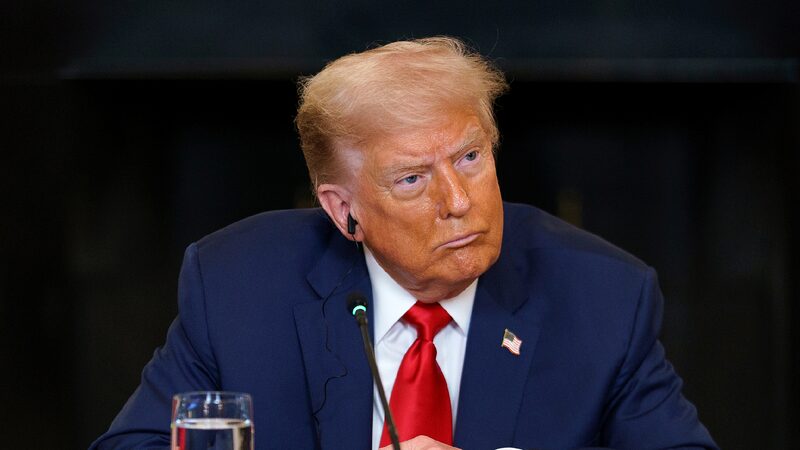Trump’s Tariffs on Steel and Aluminum Could Boost U.S. Canned Goods Prices
U.S. businesses warn that President Donald Trump’s new tariffs on steel and aluminum imports may lead to higher prices for canned goods, affecting food and beverage industries nationwide.
In response to President Donald Trump’s recent announcement of a 25% tariff on steel and aluminum imports to the United States, regardless of their country of origin, U.S. businesses and trade groups are raising concerns over potential price hikes for canned goods.
According to the Can Manufacturers Institute (CMI), which represents U.S. can makers, about 70% of the steel used to produce food cans in the U.S. is imported from countries like Germany, the Netherlands, and Canada. These new tariffs could significantly increase production costs.
“While the president may believe that these tariffs are protecting the steel industry, they certainly are undermining our food security and our supply resiliency for American canned food, which Americans rely on every day,” said Robert Budway, president of the CMI.
In 2018, during his first term, Trump imposed similar tariffs—25% on steel and 10% on aluminum imports—citing national security concerns. However, certain trading partners, including Canada, Mexico, and Brazil, were later granted duty-free quotas, and some can-makers received exclusions from these taxes. This time, the president insists that the tariffs will be enforced “without exceptions or exemptions.”
James Quincey, chief executive of Coca-Cola, warned that the tariffs could push up the prices of canned food and drinks. “If one package suffers some increase in input costs, we continue to have other packaging offerings that will allow us to compete in the affordability space,” Quincey said. He also mentioned that Coca-Cola might increase its use of plastic in the U.S. if the aluminum tariffs take effect.
The tariffs are also expected to impact U.S. craft brewers by driving up the cost of essential materials used to brew, package, and serve their beer. According to the Brewers Association, a trade organization for small and independent brewers, beer in aluminum cans accounted for approximately 75% of craft breweries’ packaged volume and revenue in the United States.
The previous tariffs on aluminum imposed in 2018 cost the U.S. beverage industry $1.7 billion between 2018 and 2022, according to the Beer Institute, a U.S. industry trade group.
The Illinois Craft Brewers Guild, a nonprofit trade association representing Illinois craft breweries, warned on social media: “Our small brewery owners and customers will pay the price.”
With the potential for increased costs on essential goods, consumers may soon feel the effects of these tariffs at the checkout line.
Reference(s):
Who pays for tariffs? Price of canned goods in U.S. could rise
cgtn.com








